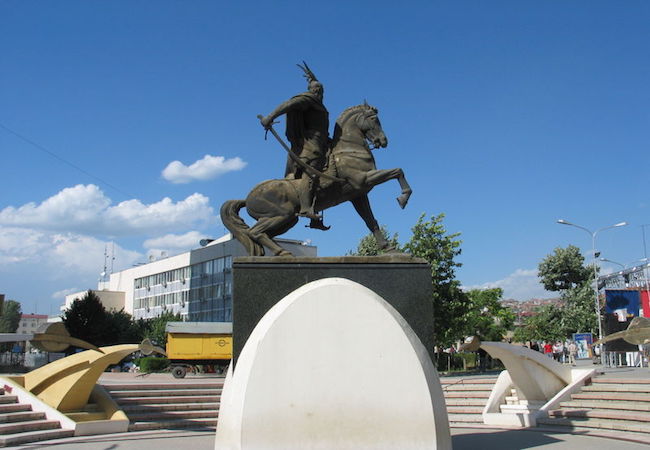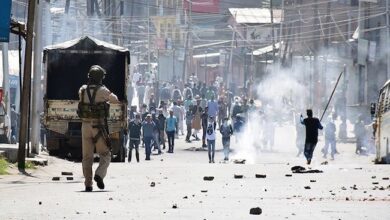
By Kole Krasniqi, PhD
During the 90s of the XX century, in Kosovo and in Albania reined a situation characterized by political tensions, with deep economic crises and with the failure of the state apparatus to function properly. These circumstances, coupled with the rapid decline of communist ideology as inspiration ideologies, have led to an increase in the rate of corruption, the destruction of the education system, the degradation of the public health system and the disruption of many family structures. In these social circumstances, there have been two events of crucial importance for the presentation of Islamist extremism in Kosovo:
a) Albania became a member of the Organization of the Islamic Conference (OIC). After the Albanian Democratic Party had obtained the absolute majority in the parliamentary elections in 1992, Sali Berisha, who was then President of the State, had Albania join the Organization of the Islamic Conference right after he had just been in office for a few months as he was hoping that Albania would be granted economic aid.
The OIC gave the country full membership rights. After Albania had become a member of the OIC, Albanian authorities unilaterally facilitated granting visas to citizens of most of the Arabian countries or even excluded them from visa requirements, a path that was used for the unhindered penetration of various radical Islamist terrorist structures from the Arab world into Albania, Kosovo and other Balkan countries.
This was also evidenced in the “Balkan Arabs” trial, which was held in Cairo in 1999, against 107 people charged with terrorism, including Osama bin Laden’s deputy, Al Zawahiri, who was sentenced to death (in absentia). Undoubtedly, Albania’s membership in the Organization of the Islamic Conference has influenced the awakening of religious awareness and empowerment of Islam in Albania and Kosovo.
b) The outbreak of the war in Bosnia and Herzegovina (1992-1995). The outbreak of the war in Bosnia-Herzegovina and the organized influx of mujahidin, who had fought in the war between Russia and Afghanistan, exacerbated the radicalization of the Muslim population in all of the territories of former Yugoslavia. After the Soviet troops had withdrawn and the “Islamic State of Afghanistan” had been proclaimed in 1992, the mission of thousands of mujahidin in Afghanistan was over. Therefore, these mujahidin, who were financed by Arabian circles, started pouring into Bosnia in order to realize their jihadist ambitions there and to spread their religious ideology that would enable certain Arabian states to expand their sphere of influence in the Balkans.
After the war was over they had been deported from Bosnia, some mujaheddin who had served in Bosnia rose up the ranks to leadership positions in different international terrorist organizations. One of them was Khalid Sheikh Mohammed who had conceived the terrorist attack on the USA in 2001 and another one was Ramzi bin al-Shibh, who was a member of the cell in Hamburg that had prepared the plan for the terrorist attack on the USA on September 11th, 2001. It is to be assumed that about 5.000 jihadists entered Bosnia-Hercegovina during the war. Some of them are still living in Bosnia, while others joined different jihadist movements in Afghanistan, Pakistan and the Middle East.
The activities of foreign Islamist organizations in Albania
While the democratic movement was on its way to Albania in 1990 and people were allowed to practice their religions, which had been forbidden since 1967, some members of Islamist NGOs from the Middle East traveled for the first time to Albania in order to reinforce a revival of Islam by providing different sorts of religious materials and aid. After the outbreak of the war in Bosnia-Hercegovina (which lasted from 1992-1995), the start of armed conflicts in Albania (1997) and the beginning of the war in Kosovo (that lasted from 1998-1999) respectively the outbreak of the war in Macedonia in 2001, all of the preconditions had been created for the unchecked entries of dozens of extremist Islamist organizations from the Middle East and for their unchecked destructive activities in all regions of the Balkans populated by Muslims.
These “religious” or “humanitarian” organizations, have promoted a new radical religious ideology, Some of these organizations are:
a) The International Islamic Relief Organization (IIRO). This humanitarian organization was founded by the Saudi King Chalid ibn Abd al-Aziz, and it is also an organization part of the Organization of the Islamic Conference. A branch of this organization was registered in Albania in 1990 and chaired by Mohammad al-Zawahiri, the younger brother of Al-Qaida deputy leader Ayman al-Zawahiri. This Islamist organization was the first of its kind to be permitted in Albania and they embraced a destructive activity, by financing the spread of a radical Islamist ideology through a different humanitarian stimulation.
b) The Arab-Albanian Islamic Bank. After Albania had joined the Organization of the Islamic Conference in 1992, the Islamic Development Bank demanded that the Albanian authorities open an “Arab Albanian Islamic Bank” in Tirana and they promised that considerable loans would be granted thereby for the reconstruction and economic development of Albania. Instead of living up to their pledge, the “Arab Albanian Islamic Bank” funded solely the construction of hundreds of mosques and the training of thousands of young Albanians in religious courses taking place everywhere in Albania and likewise in different Islamic centers in Turkey, Saudi Arabia, Qatar, Egypt, Malaysia, Pakistan etc.
c) The Muwafaq Foundation. According to official sources, Osama bin Laden was in Albania in 1994. An Interpol London report also confirms that he was very likely there. During this time, a branch of the Muwafaq (“Blessed Aid“) Foundation was opened. Together with five private companies, this foundation operated under the umbrella of Makhtab al-Khidamat. The latter organization was founded by Osama bin Laden. The Muwafaq Foundation which was chaired by Yasin Abdullah Ezzedine al-Qadi worked on spreading the Selafi doctrine in Albania. Other branches of this organization in Bosnia, Pakistan, Sudan, Afghanistan and Somalia etc., have also been engaged in exploring financial resources to finance certain international terrorist activities.




